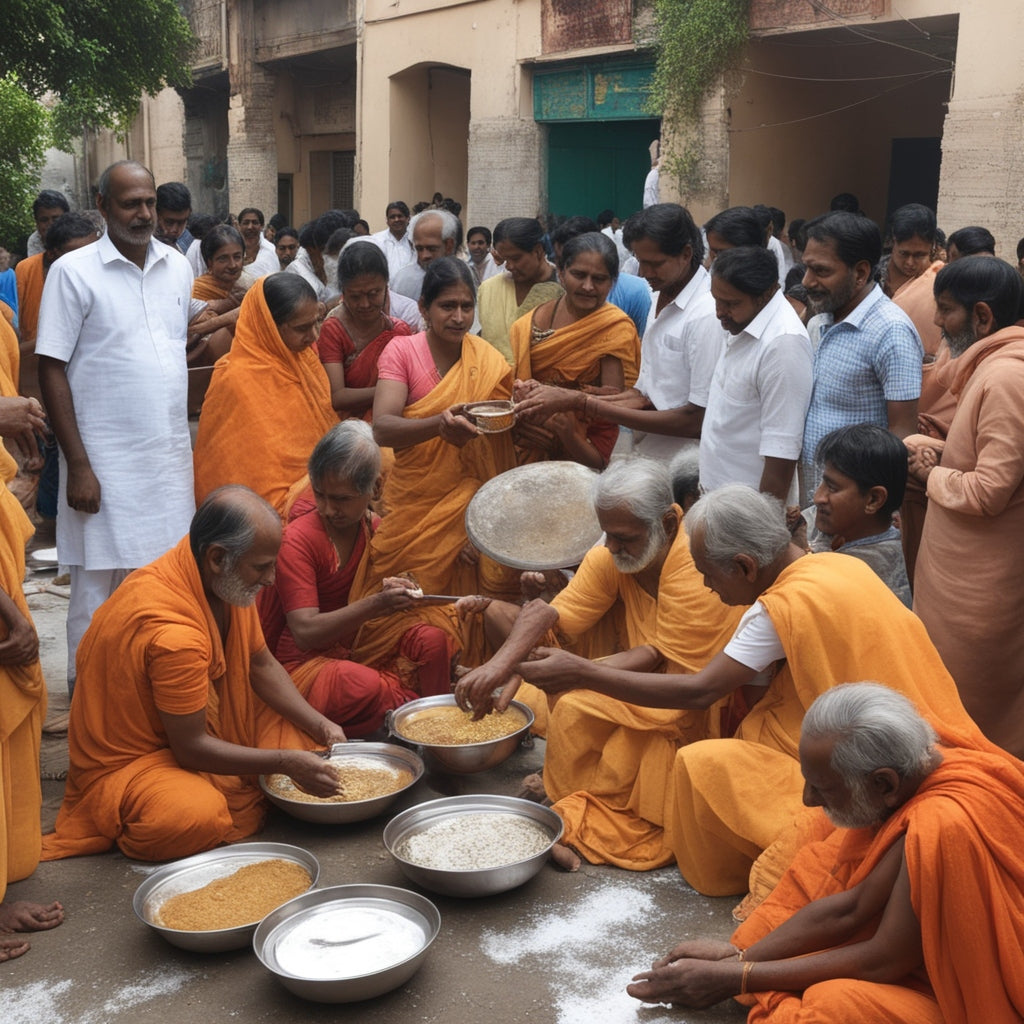Pitru Paksha 2024: Honoring Ancestors with Devotion and Rituals
When Will Pitru Paksha Start in 2024?
In 2024, Pitru Paksha will commence on Wednesday, September 18, and will conclude on Wednesday, October 2. This period aligns with the dark fortnight of the lunar month of Bhadrapada, which typically falls in September and October in the Gregorian calendar.

Who Are Pitru Devatas?
In Vedic tradition, Pitru Devatas refer to the deities associated with ancestors. These ancestral deities are believed to reside in the Pitru Loka, a realm governed by Yama, the god of death. The Pitru Devatas include parents, grandparents, and great-grandparents. Many also honor other departed relatives, friends, mentors, and even beloved pets. These deities are invoked and honored during Pitru Paksha to seek their blessings and express gratitude for their guidance and protection.
How Is Pitru Paksha Celebrated?
Pitru Paksha is celebrated with various rituals and practices aimed at honoring and appeasing the ancestors. The observances include:
Spiritual Practices: During Pitru Paksha, many people dedicate their prayers, meditation, chanting, and mantra repetition to their ancestors. Recitations from sacred texts like the Upanishads and the Bhagavad Gita are common.
Charitable Works: Performing charitable deeds is a key aspect of Pitru Paksha. This includes feeding the needy (Annadana Seva), serving cows (Gau Seva), and offering gifts to Brahmins (Dakshina). Some also plant trees as a symbol of life and continuation.
Pitru Puja at Home: Setting up a sacred space at home to offer prayers, light incense, and make offerings to Lord Krishna and the ancestors is a meaningful way to connect with departed loved ones. This typically involves reciting mantras and offering food and water with devotion.
Mahalaya Amavasya: The most significant day of Pitru Paksha is Mahalaya Amavasya, marking the culmination of the period. Special puja rituals are performed on this day to seek the blessings of the ancestors, following specific steps and mantras to honor their spirits.
Is Pitru Paksha Inauspicious?
Pitru Paksha is traditionally considered a period of introspection and remembrance rather than inauspiciousness. It is a time to honor ancestors and reflect on their influence and legacy. However, to focus fully on these observances, it is recommended to refrain from starting new projects, major undertakings, marriages, and long-distance travel during this period. These abstentions help ensure that the period is dedicated to honoring and supporting the journey of the departed souls.

When Pitru Dosha Ends?
Pitru Dosha, a concept in Vedic astrology, refers to the difficulties or negative effects believed to arise due to the dissatisfaction of the ancestors. It is thought to bring various challenges in one’s life. Performing the rituals and practices of Pitru Paksha helps mitigate the effects of Pitru Dosha, bringing peace to the departed souls and blessings to their descendants. When the rituals of Pitru Paksha are conducted with devotion and sincerity, it is believed that the Pitru Dosha is alleviated, ending the associated challenges and bringing harmony to the family.
Understanding Pitru Paksha
Pitru Paksha, known as the “fortnight of the ancestors,” is a fifteen-day observance that takes place during the Indian lunar month of Bhadrapada. In Sanskrit, "pitru" means “ancestors” and "paksha" means a “fortnight” or a “side” of a lunar month. According to the Vedic lunar calendar, a paksha comprises fifteen tithis or lunar days. There are two pakshas in a lunar month: Shukla Paksha, the bright fortnight following the new moon (amavasya), and Krishna Paksha, the dark fortnight following the full moon (purnima). The bright fortnight is associated with growth and expansion, while the dark fortnight, which includes Pitru Paksha, is associated with introspection, contemplation, purification, and transformation.
Pitru Paksha begins on the pratipada, or first day, after the full moon that concludes Ganesh Utsava, the festival in honor of Lord Ganesh. This period, falling within the dark fortnight of the moon, ends with Sarvapitru Amavasya, the “new moon of all the ancestors.” The southern direction is considered the place associated with the ancestors, and during Pitru Paksha, the sun transitions from the northern to the southern hemisphere, aligning with this traditional significance.
Observances of Pitru Paksha
During Pitru Paksha, it is the duty (dharma) of the living to offer prayers, blessings, and the fruits of their spiritual practices for the benefit of the departed. Siddha Yogis may dedicate their spiritual practices, such as prayers, meditation, offerings of dakshina, chanting, mantra repetition, and svadhyaya (recitation of sacred texts like Shri Guru Gita), to their ancestors. Reciting prayers from the Upanishads and the Bhagavad Gita to honor the eternal Self of our loved ones is also customary.
Charitable works are a traditional observance during Pitru Paksha. These can include giving food to the needy, honoring sannyasis (monks), supporting the education of children and young people in need, and continuing the charitable works of our ancestors. Planting a tree in honor of departed loved ones is another meaningful gesture.
Recommended Abstentions
To focus on honoring departed ancestors, it is traditionally recommended to refrain from beginning new projects, major undertakings, marriages, and long-distance travel during Pitru Paksha. Performing Pitru Paksha rituals helps the departed souls attain peace and, in turn, blesses the person and their family who perform these rites. Offering charity, such as feeding the needy or serving birds and animals, during this period is considered noble.
This Pitru Paksha, honor your ancestors through rituals, charity, and devotion, recognizing their eternal influence and the legacy they have left behind.


